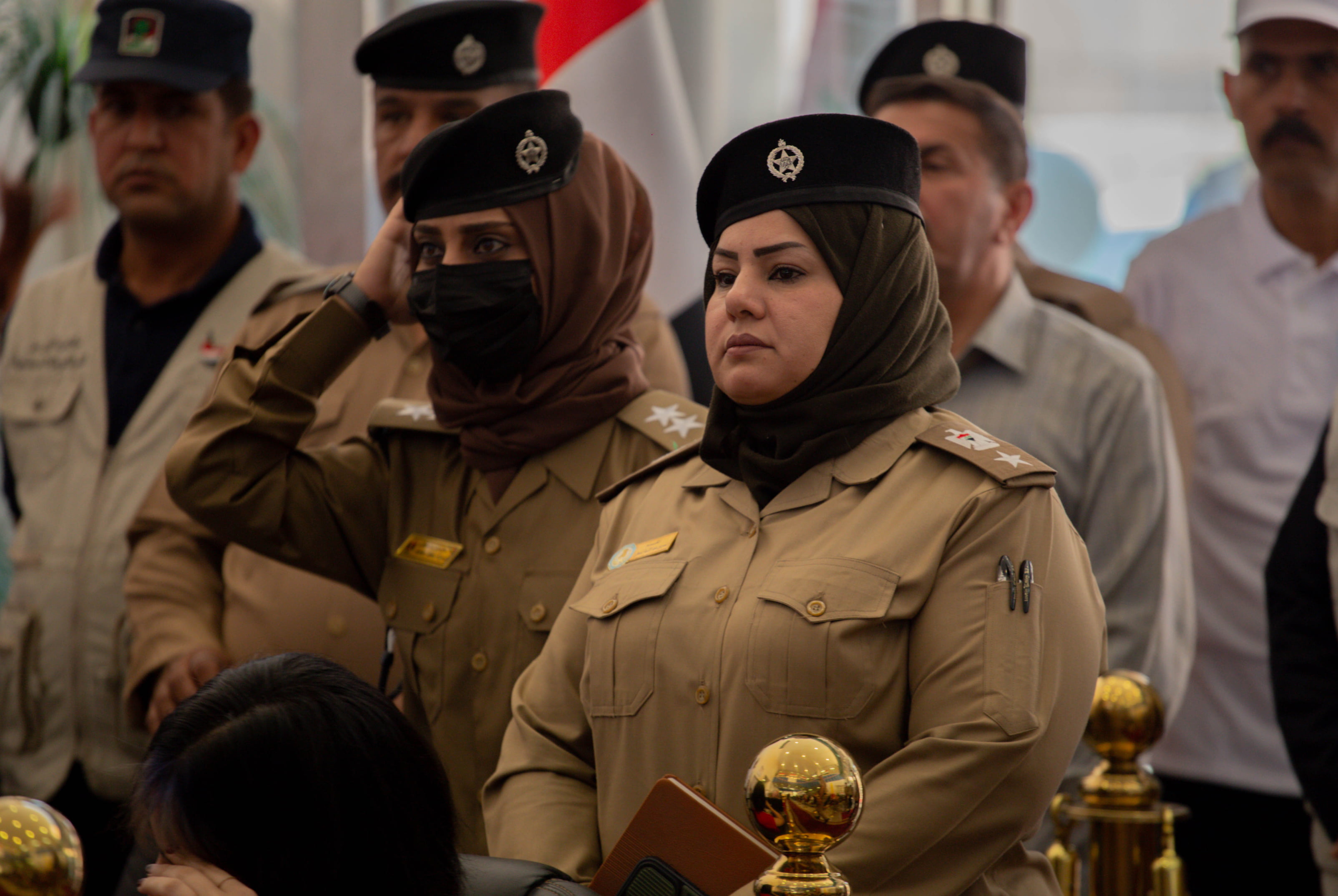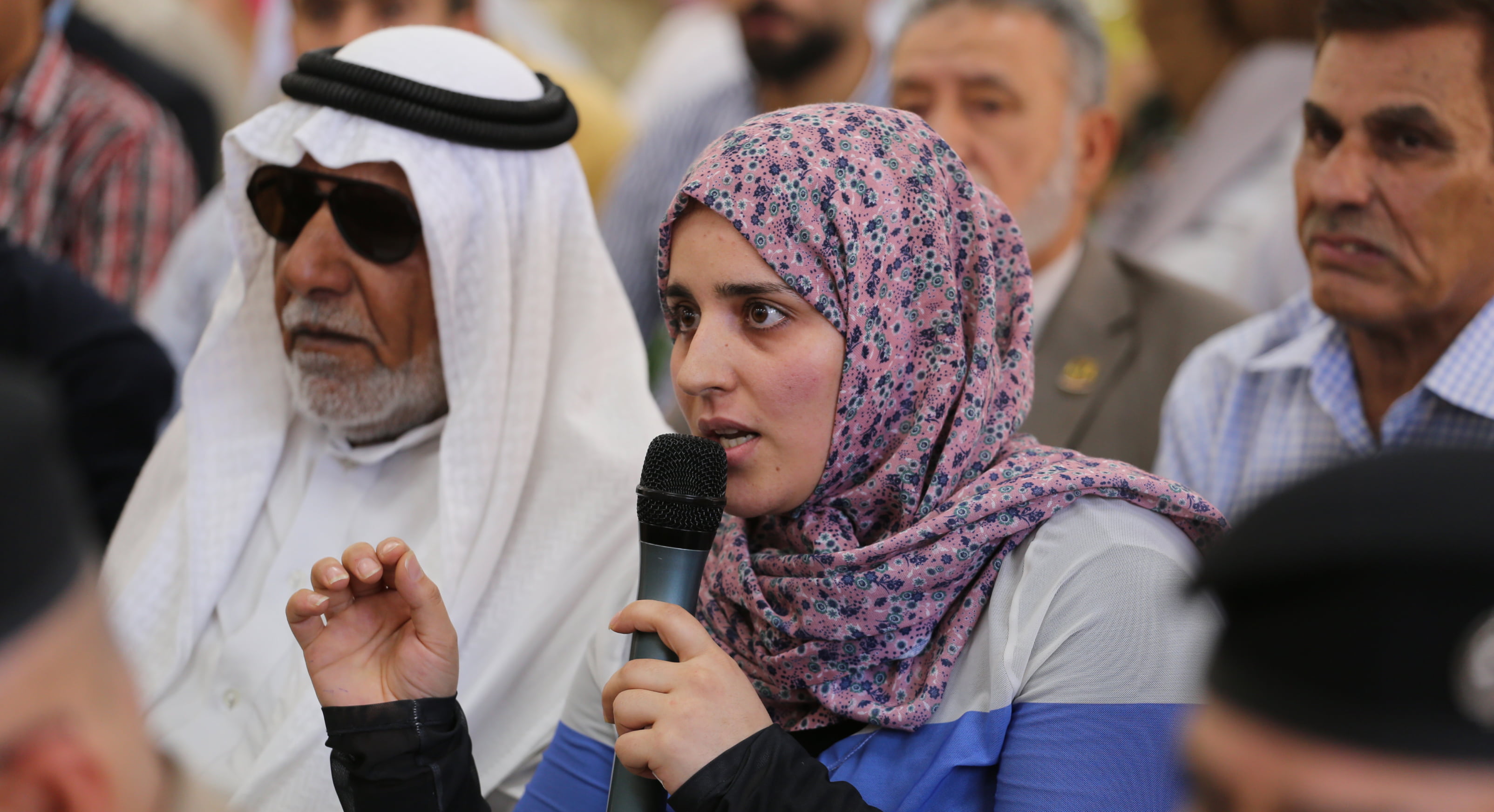Iraq

Countries & Territories
In Iraq, the delays in forming a new government following the 2021 elections slowed down the security sector, good governance and rule of law reforms for most of 2022. In this context, UNDP continued to provide technical advisory support and capacity building to advance security sector reform, community policing, gender equality and access to justice. Since 2017, the rule of law projects in Iraq have benefitted from the support provided by UNDP’s Global Programme for Strengthening the Rule of Law, Human Rights, Justice and Security for Sustainable Peace and Development (the Global Programme). Technical expertise and facilitated connections with the other UNDP Country Offices from the region and beyond enabled the development of a solid justice and security offer that has effectively responded to the Iraqi crisis.
Partnerships
To ensure an inclusive security sector reform process with the objective of transferring the internal security management from the military to the police, UNDP works closely with the UN Country Team in Iraq, in particular with the UN Assistance Mission for Iraq (UNAMI), UN Office on Drugs and Crime (UNODC), the International Organization for Migration (IOM), as well as with the European Union Advisory Mission (EUAM) and the NATO Mission to Iraq (NMI). Key Iraqi rule of law and governance stakeholders remained engaged in policy dialogues for reforms pending the formation of the new government and the resumption of the activities in this area.
To enhance security at the local level and to build trust between security services and the communities, UNDP supported community-police partnerships. The local authorities and the police, together with the tribal leaders, women and youth organizations, held awareness raising sessions for more than 2,400 people (including 710 women) in six localities where the model police stations had been previously rolled out.
Gender equality
Working towards women’s equal participation in security services remains an important goal for UNDP. One of the key challenges in this process is the very low number of women in the Iraqi security and law enforcement services. Throughout 2022, UNDP supported capacity development for 250 police trainers and mentors (including 20 women) and invested in strategic policy efforts for the implementation of the local police roadmap. UNDP provides strategic policy advice to the Ministry of Interior, for example, a gender study was commissioned to inform the security sector and policing reforms.

Female police officers at the Open Day of Basmaya Police Station, Baghdad, Iraq
Leave No One Behind
Through its stabilization fund, UNDP rehabilitated 50 police stations and 10 courts enabling the return and access to justice for people in former ISIL (Da’esh) controlled areas. UNDP continued its support to fostering conditions for peaceful co-existence and resilience to violent extremism through the creation of economic opportunities for youth and women in fragile communities. For example, a ten-day business skills development training was organized for 200 participants (including 80 women) who received support in developing their business implementation plans. Over 90 percent of the beneficiaries assessed the improvement of their business skills from beginners to intermediate and advanced levels.
In July 2022, UNAMI and UNDP commenced a trial monitoring programme to inform anti-corruption policies and address money laundering. UNDP’s capacity building activities complemented UNAMI’s strategic advice and anti-corruption policy recommendations. UNDP provided training for 836 judges, prosecutors and investigators on financial and corruption investigations. Within the anti-corruption project, almost 100 ongoing anti-corruption trials were monitored, and 104 old verdicts were analysed to identify positive and negative trends and address the shortcomings in the system. Four policy dialogues were held with the judiciary, the Bar Association and civil society to overcome challenges in their collaboration that slow down or frustrate financial investigations. To promote judicial integrity, the Federal Supreme Judicial Council adopted the Judicial Code of Conduct for judges and prosecutors while the Commissions of Integrity (independent units within the government) and the Bar Association started drafting their codes of conduct with UNDP support.
To promote legislative reforms in Iraq and to support the authorities in harmonizing the legislation with international standards, UNDP reviewed the draft laws on access to information, conflict of interest, public procurement regulations and the amendments to the criminal procedure code and the penal code at the federal level, and the draft law on the judicial oversight authority in Kurdistan region. Based on this analysis, the drafts were revised in line with international standards and shared with the Commission of Integrity for the final review. In addition, 567 public officials (150 were women) including members of Parliament, received training on legislative drafting to further align these pieces of legislation with the international standards.

Local community representatives raising security concerns at the Open Day at Ramadi Model Police Station, Iraq
Leave No One Behind
Going forward, UNDP will strengthen the engagement with civil society in the security sector reform process and will initiate discussions with the Parliamentary Committee on Security and Defense to enhance the oversight system. Building on the 2022 achievements, UNDP will further advance a people-centred approach to security. An upcoming model police station post-implementation survey will capture lessons learned and guide future implementation of the initiative.
UNDP’s Global Programme, the Global Focal Point for the Rule of Law (GFP) and the UN Human Rights Office will organize a scoping and programming mission to Iraq in 2023 on climate and environmental justice, a topic of acute importance to the country which is heavily affected by climate change and environmental degradation. The purpose of the mission will be to generate new areas of engagement on legislative review and support, institution building and strengthening of civic space in the adjudication of environmental disputes.

results
- More than 2,400 people (including 710 women) were sensitized about the role of community police as a result of the joint awareness raising campaign led by the local authorities and the police, together with the tribal leaders, women and youth organizations.
- Over 800 judges, prosecutors and investigators (including 89 women) improved their knowledge on financial investigations and anti-corruption, and 567 public officials (including 150 women) received training in legislative drafting in line with international standards. Four policy dialogues were held to improve collaboration among the judiciary, the Bar Association and civil society in addressing corruption and financial crimes.
- Youth and women in fragile communities improved their business skills for better economic opportunities. 80 participants (including 21 women) received support in developing business implementation plans. Over 90 percent of the beneficiaries assessed the improvement of their business skills from beginners to intermediate and advanced levels.

